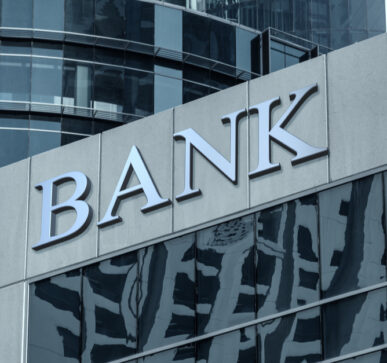On 1/3/23, Regulatory Agencies; including the Board of Governors of the Federal Reserve System, the Federal Deposit Insurance Corporation and the Office of the Comptroller issued a Joint Statement on Crypto-Asset Risks to Banking Organizations. The Regulatory Agencies want to ensure that Banking Organizations understand that the risks related to the crypto-asset sector that cannot be mitigated or controlled do not migrate to the banking system given the volatile events and recent failures of several large crypto-asset companies that transpired in 2022. All Banking Organizations that participate in the crypto-asset ecosystem ought to evaluate their interactions with crypto-assets that could generate risk and threaten the financial stability of the U.S.
Although Banking Organizations are neither prohibited nor discouraged from providing banking services to customers of any specific class or type, (including crypto) as permitted by law or regulation, the Regulatory Agencies are continuing to assess whether or how current and proposed crypto-asset-related activities by banking organizations can be conducted in a manner that adequately addresses:
- safety and soundness
- consumer protection
- legal permissibility
- compliance with applicable laws and regulations, including anti-money laundering and illicit finance statutes and rules
Regulators want Banking Organizations to be aware of:
- Risk of fraud and scams among crypto-asset sector participants.
- Legal uncertainties related to custody practices, redemptions, and ownership rights, some of which are currently the subject of legal processes and proceedings.
- Inaccurate or misleading representations and disclosures by crypto-asset companies, including misrepresentations regarding federal deposit insurance, and other practices that may be unfair, deceptive, or abusive, contributing to significant harm to retail and institutional investors, customers, and counterparties.
- Significant volatility in crypto-asset markets, the effects of which include potential impacts on deposit flows associated with crypto-asset companies.
- Susceptibility of stablecoins to run risk, creating potential deposit outflows for banking organizations that hold stablecoin reserves.
- Contagion risk within the crypto-asset sector resulting from interconnections among certain crypto-asset participants, including through opaque lending, investing, funding, service, and operational arrangements. These interconnections may also present concentration risks for banking organizations with exposures to the crypto-asset sector.
- Risk management and governance practices in the crypto-asset sector exhibiting a lack of maturity and robustness.
- Heightened risks associated with open, public, and/or decentralized networks, or similar systems, including, but not limited to, the lack of governance mechanisms establishing oversight of the system; the absence of contracts or standards to clearly establish roles, responsibilities, and liabilities; and vulnerabilities related to cyber-attacks, outages, lost or trapped assets, and illicit finance.
Heads Up: Regulators will continue to closely monitor crypto-asset-related exposures of Banking Organizations
The Joint Statement states that each Regulatory Agency has developed processes whereby Banking Organizations engage in robust supervisory discussions regarding proposed and existing crypto-asset-related activities ensuring that crypto-asset-related activities can be performed:
- in a safe and sound manner,
- are legally permissible,
- comply with applicable laws and regulations, including those designed to protect consumers (such as fair lending laws and prohibitions against unfair, deceptive, or abusive acts or practices).
In sum, “Banking Organizations should ensure appropriate risk management, including board oversight, policies, procedures, risk assessments, controls, gates and guardrails, and monitoring, to effectively identify and manage risks”.
Does your Banking Organization have Crypto Exposure?
Who is your Corporate Governance Advisor? ©





